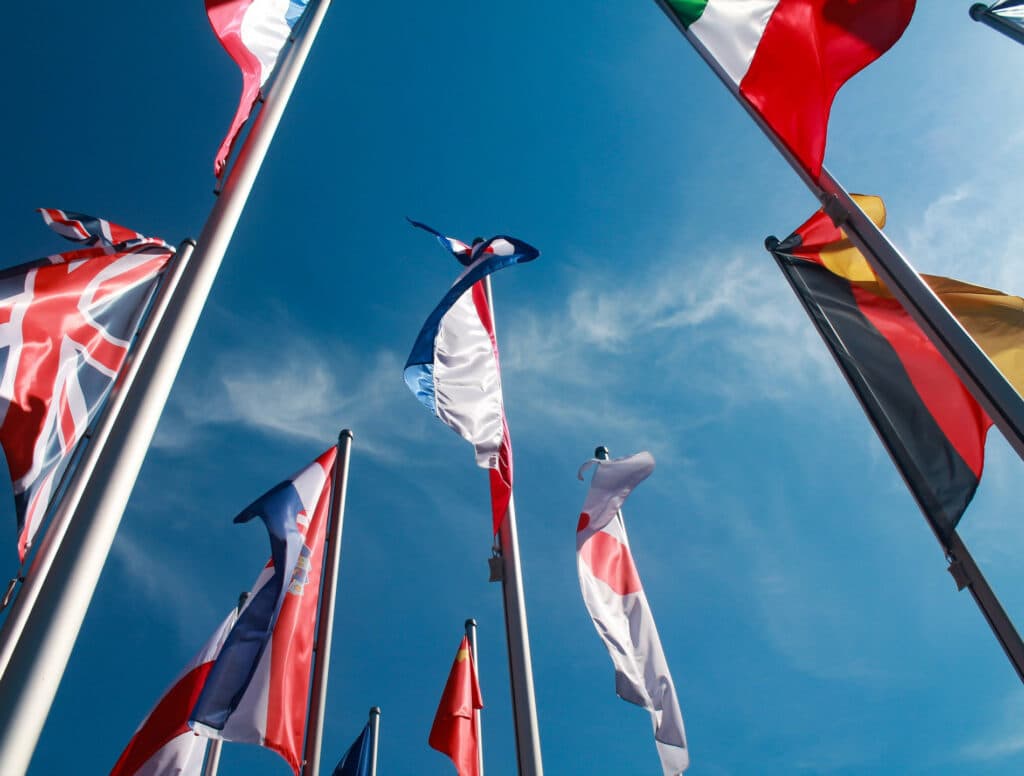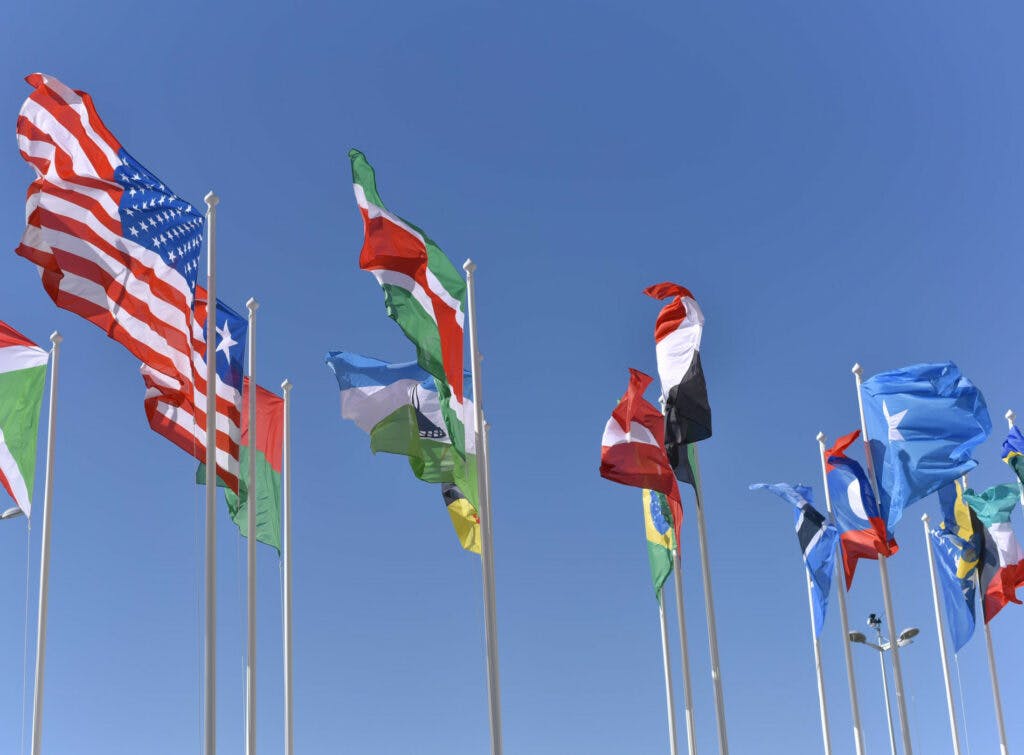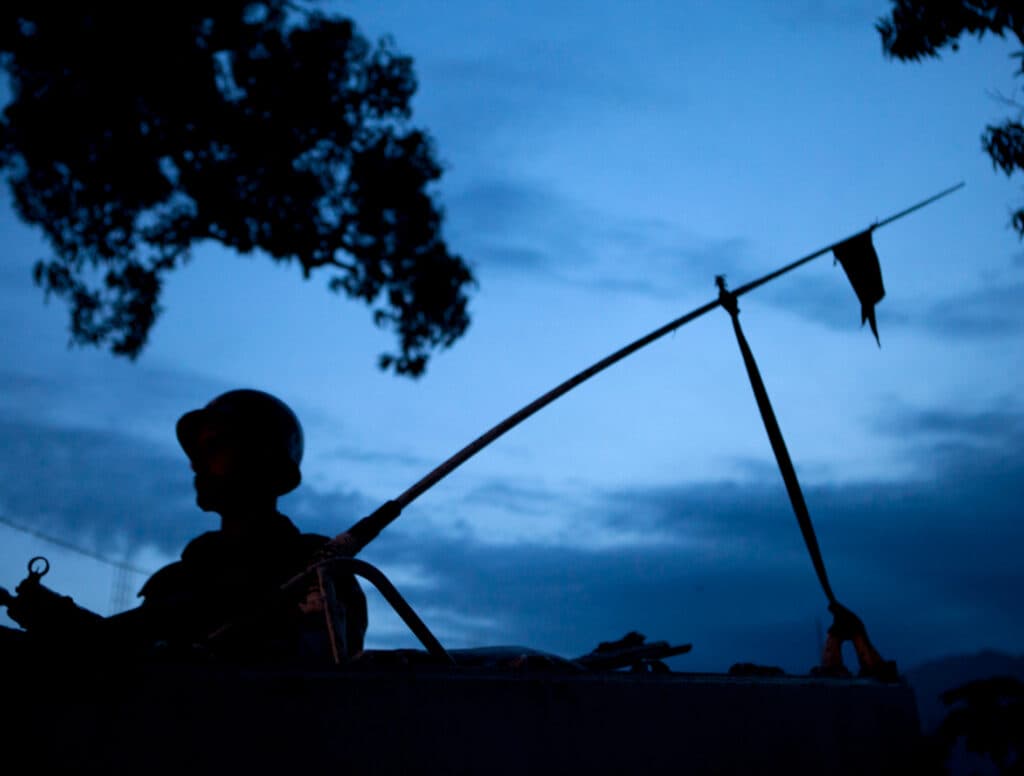
Enforcement of IHL
Accountability for violations of international humanitarian law
When violations of international humanitarian law (IHL) occur, victims often suffer serious consequences. Increasingly, there is an attention for accountability for IHL violations.
Since international humanitarian law (IHL) is a branch of public international law, the general rules of state and individual responsibility apply. In addition to these general rules, IHL sets out specific obligations for warring parties and third states when it comes to IHL violations.
Obligations of the warring parties for IHL violations
The primary responsibility to respect the rules of IHL lies with the warring parties to an armed conflict. Respect for IHL is the most important obligation of the parties to an armed conflict.
“To respect” means that all state institutions, including individuals and bodies under their authority, must follow the rules of the Geneva Conventions. A state has a duty to do everything it can to ensure that the laws of war are respected by all – the duty to exercise due diligence). A key element of a state’s obligations under the Geneva Conventions is the dissemination of IHL standards and education of its armed forces and general population.
Under Common Article 1 of the Geneva Conventions, which codifies the notion of respect, parties to a conflict must respect all applicable rules of IHL in all circumstances. These rules include those found in the Geneva Conventions, their Additional Protocols, the Hague Regulations as well as rules of customary international humanitarian law. States must enact legislation to give legal status to the protections provided for under international law.
They also have to actively search for war criminals within its jurisdiction and bring them to court or extradite them as soon as possible (Article 146 GCIV, Article 80 API).
Responsibility of states
A state is responsible for the behaviour of its soldiers when they take part in conflicts abroad. This also applies to the actions of soldiers in peace-keeping missions. In fact, states are responsible to ensure that the rights in the Conventions are respected in all places under its control. For example, a state has to ensure the protection of prisoners in a prison that is run by its armed forces abroad.
There is no explicit obligation under IHL to investigate every violation, but all grave breaches and serious violations of IHL must be investigated. That said, investigation of all violations is an important way to ensure genuine respect for the law. In order to be taken seriously, the notion of respect must include some form of genuine legal protection.
When states violate rules of IHL they must cease the violation and make reparation to the victims.
Third state responsibility and IHL
The enforcement of the rules of IHL cannot be left entirely to the warring parties since they are the ones who regularly violate them. The drafters of the Geneva Conventions were aware of this challenge and set out clear obligations for third states. Common Article 1 of the 1949 Geneva Conventions provides that all High Contracting Parties to the Geneva Conventions have to “respect and ensure respect” for the Convention in all circumstances.
Hence, during times of armed conflict and at other times, all states must take steps to ensure respect for (and refrain from taking any measure to undermine respect for) these cornerstone conventions of modern IHL.
In addition, when it comes to grave breaches, all states shall actively search for war criminals within their borders - even if the crimes were committed in another country and the suspect is a non-citizen - and bring them to court or extradite them as soon as possible (Article 146 GCIV, Article 80 API).
The European Union Guidelines on Promoting Compliance with International Humanitarian Law list several measures which can be seen as a means of implementing the obligation to ‘ensure respect’. In practical terms, the international community could consider imposing sanctions in accordance with the UN Charter. Sanctions can be diplomatic, economic, and as a last resort, could even be of a military nature. Steps that could be taken include political dialogue, demarches, restrictive measures such as sanctions, and ensuring accountability for war crimes.
Other actors who monitor the respect for IHL
There is no supranational police force to intervene and ensure that violators of international law are punished. Monitoring of respect for IHL is done by different actors, such as the warring parties themselves, protecting powers, the International Committee of the Red Cross (ICRC), international fact finding and enquiry missions, United Nations Special Procedures, and treaty monitoring bodies.
A state involved in an armed conflict is responsible for the conduct of the members of its armed forces. Leaders are responsible for the orders they give to subordinates. And soldiers can be held liable for the action they take under the rules on individual criminal responsibility.
Media monitoring IHL violations
Journalists of local and international media report on conflicts and often have direct access to front lines and victims of possible IHL violation.
Independent media outlets play a crucial role in identifying, reporting on, and making public possible violations. Therefore, they are fundamental part of ensuring respect for IHL and international law in general.
Protecting Power
According to the Geneva Conventions, a so-called Protecting Power can be appointed by the parties. A Protecting Power is a neutral third state which is given the task to monitor observance of IHL.
Protecting Powers have not been used often since parties to a conflict often fail to agree on a third state.
International Committee of the Red Cross (ICRC)
The International Committee of the Red Cross (ICRC) has a specific mandate to work in armed conflicts, including visiting prisoners of war (POW) and other detained persons as well as providing medical care and protection for civilians.
Fact-finding commissions
As stipulated in Article 90 of Additional Protocol I (API), a fact-finding mission can be appointed to investigate allegations of violations of IHL. The UN, EU, or the Organisation for Security and Cooperation in Europe (OSCE) can also deploy different kinds of fact-finding commissions of their own.



